Filter by
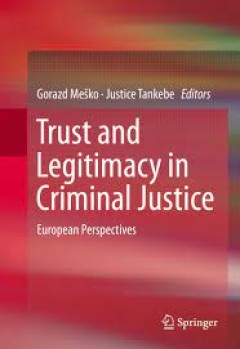
Trust and Legitimacy in Criminal Justice
The book explores police legitimacy and crime control, with a focus on the European region. Using comparative case studies, the contributions to this timely volume examine the effects of a transition to democracy on policing, public attitudes towards police legitimacy, and the ways in which perceptions of police legitimacy relate to compliance with the law. Following these case studies, the …
- Edition
- -
- ISBN/ISSN
- 978-3-319-09813-5
- Collation
- XVI, 293
- Series Title
- -
- Call Number
- -
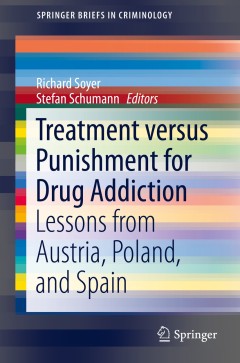
Treatment versus Punishment for Drug Addiction
Transnational, interdisciplinary comparison of drug laws and treatment for drug-addicted offenders Explores decisive factors for judges and prosecutors to select treatment instead of punishment options Examines challenges of cooperation between law enforcement and public health for drug treatment, and presents possible solutions
- Edition
- 1
- ISBN/ISSN
- 978-3-319-18824-9
- Collation
- XIV, 100
- Series Title
- SpringerBriefs in Criminology
- Call Number
- -
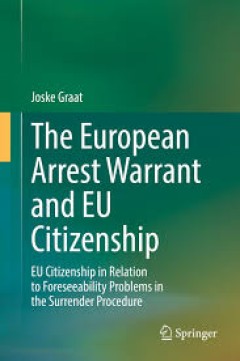
European Arrest Warrant
This book examines the European arrest warrant as a successful and effective instrument for judicial co-operation in criminal matters in the European Union. Providing comprehensive content and combining theoretical and practical aspects, it covers all of the major issues surrounding the European arrest warrant. The book analyses its genesis, main features, surrender procedure, case law, impleme…
- Edition
- -
- ISBN/ISSN
- 978-3-319-07338-5
- Collation
- XV, 375
- Series Title
- -
- Call Number
- -
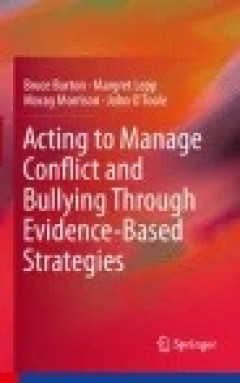
Acting to Manage Conflict and Bullying Through Evidence-Based Strategies
This book offers a complete and detailed account of the evolution of an internationally successful, evidence-based program that has been the result of almost two decades of action research into conflict and bullying. It addresses one of the most serious problems encountered in schools and work places worldwide: that of bullying and inter-personal conflict. The book presents a comprehensive acco…
- Edition
- Ed. 1
- ISBN/ISSN
- 978-3-319-17882-0
- Collation
- XII, 199
- Series Title
- -
- Call Number
- 364 ACT a
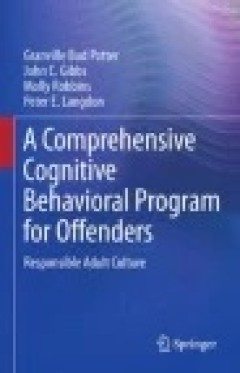
A Comprehensive Cognitive Behavioral Program for Offenders: Responsible Adult…
This book presents Responsible Adult Culture (RAC), a truly comprehensive program for helping offenders to think and act responsibly. It provides the tools of the program with great clarity. In addition to exploring the needs of all offenders, the book addresses the special needs of both female and dual-diagnosis offenders. Responsible thinking means habitually seeing others and situations accu…
- Edition
- Ed. 1
- ISBN/ISSN
- 978-3-319-17536-2
- Collation
- -
- Series Title
- -
- Call Number
- 364 POT c

Empowerment on Chinese Police Force's Role in Social Service
This is the first scholarly book to explore the empowerment and the social service role of frontline police officers in the People’s Republic of China. It approaches the study of role strain and empowerment, informed by local empirical data and personal experience. Thematically organized and focusing on those issues of greatest concern to the public, such as the dual social control (informal …
- Edition
- -
- ISBN/ISSN
- 978-3-662-45614-9
- Collation
- 5 b/w illustrations
- Series Title
- -
- Call Number
- -
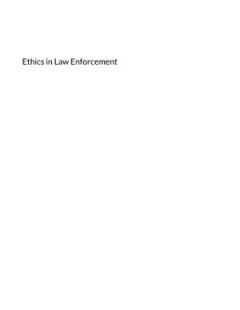
Ethics in Law Enforcement
In this book, you will examine the moral and ethical issues that exist within law enforcement. This book will also familiarize you with the basic history, principles, and theories of ethics. These concepts will then be applied to the major components of the criminal justice system: policing, the courts, and corrections. Discussion will focus on personal values, individual responsibility, decisi…
- Edition
- -
- ISBN/ISSN
- 9781989623633
- Collation
- -
- Series Title
- -
- Call Number
- 364 MCC e
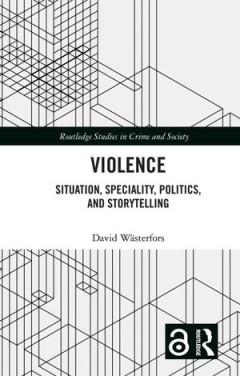
Violence: Situation, Speciality, Politics, and Storytelling
This book considers how the concept of violence has been interpreted, used, defined, and explored by social researchers and thinkers. It does not provide a final answer to the question of what violence is or how it should be explained (or prevented), and instead offers a variety of useful ways of thinking about and theorising the phenomenon, mainly from a sociological standpoint. It outlines…
- Edition
- -
- ISBN/ISSN
- 9781000624069
- Collation
- -
- Series Title
- -
- Call Number
- 364 WAS v
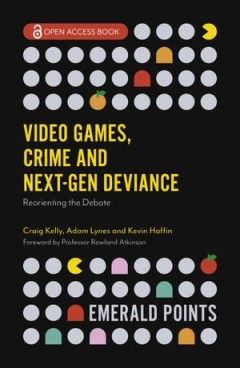
Video Games, Crime and Next-Gen Deviance : Reorienting the Debate
The ebook edition of this title is Open Access, thanks to Knowledge Unlatched funding, and freely available to read online. In recent decades the video games industry has grown astronomically, quickly becoming a substantial part of our everyday lives. Alongside the rise of this technology, the media, academia and, in some cases, governments, have drawn correlations between video games and serio…
- Edition
- -
- ISBN/ISSN
- 9781838674502
- Collation
- -
- Series Title
- -
- Call Number
- -
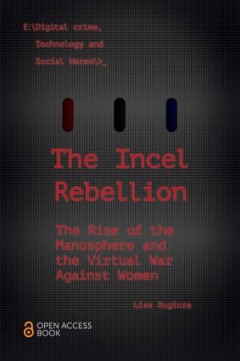
The Incel Rebellion : The Rise of the Manosphere and the Virtual War Against …
Emerging alongside the progression of women's rights in the twenty-first century is the development of the men's rights movement, parts of which have culminated into the contemporary 'manosphere.' Consisting of online communities that ascribe to misogynistic ideologies, which objectify, disparage, and dehumanise women, the manosphere also houses those who identify as involuntary celibate (incel…
- Edition
- -
- ISBN/ISSN
- 9781839822551
- Collation
- -
- Series Title
- -
- Call Number
- -
 Computer Science, Information & General Works
Computer Science, Information & General Works  Philosophy & Psychology
Philosophy & Psychology  Religion
Religion  Social Sciences
Social Sciences  Language
Language  Pure Science
Pure Science  Applied Sciences
Applied Sciences  Art & Recreation
Art & Recreation  Literature
Literature  History & Geography
History & Geography